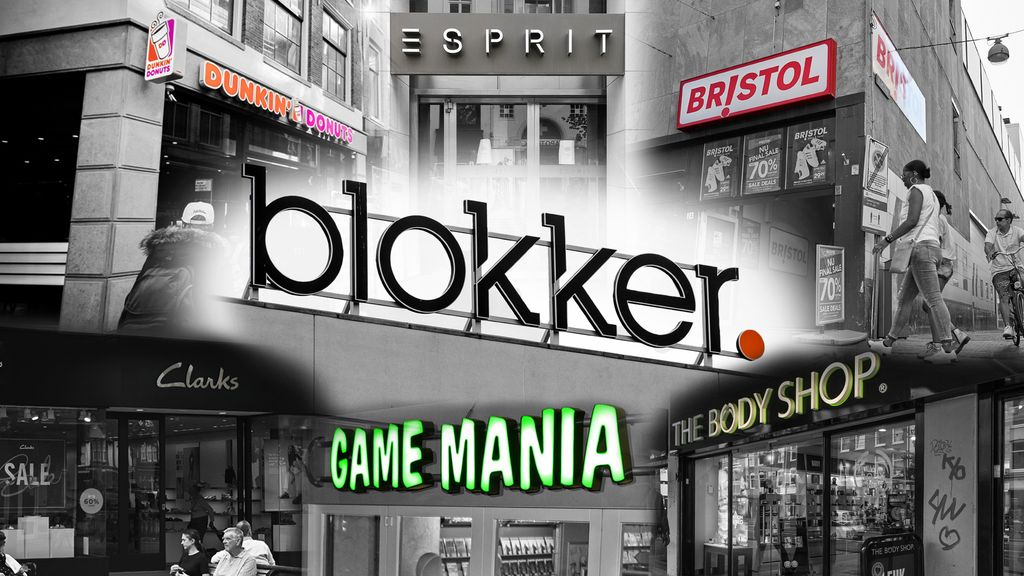
This article was last updated on December 27, 2024
Canada: ![]() Oye! Times readers Get FREE $30 to spend on Amazon, Walmart…
Oye! Times readers Get FREE $30 to spend on Amazon, Walmart…
USA: ![]() Oye! Times readers Get FREE $30 to spend on Amazon, Walmart…
Oye! Times readers Get FREE $30 to spend on Amazon, Walmart…
Table of Contents
Large retail chains are collapsing, ‘continue to innovate so as not to lose relevance’
“Sorry, this store is permanently closed. We will miss you,” reads Olaf Zwijnenburg on an A4 sheet on the window of The Body Shop in the shopping heart of Arnhem. He is retail sector manager at Rabobank and was involved in numerous transitions of retail chains for many years.
Zwijnenburg wonders whether shoppers will also miss the cosmetics chain. “It’s a very thin line between profit and loss. Apparently it wasn’t enough to keep it going.”
Major chains go bankrupt
Among the more than 4,000 Dutch companies that went bankrupt this year are 336 retail companies. This means that the number of bankruptcies in retail will increase by 21 percent compared to 2023. And then the CBS figures for December have yet to arrive.
This does not go unnoticed in the shopping street. The Body Shop, Dunkin’ Donuts, Game Mania, Bristol, Esprit, Clarks and Blokker: quite a few retail chains with many branches are closing their doors.
Toxic cocktail
“Something is really going on,” says Zwijnenburg. “It is a toxic cocktail of inflation, declining sales volumes and sharply rising costs for purchasing, personnel, energy, rents and recovering the corona tax debt.”
In front of a Blokker building with sale posters, Zwijnenburg says: “This is extra painful. An implosion of a real shopping empire. It is particularly tragic for all employees.”
That Blokker cousin Roland Palmer now has the store name buys Zwijnenburg thinks this is a good thing. However, growing again will be difficult, he thinks. So far it is known that only the webshop and 45 Blokker franchisees will remain open for the time being.
That void is not simply filled. Research into the shopping street by Locatus shows that vacancy in the shopping street increased in the first half of 2024. That was not repaired afterwards.
Since 2010, almost a quarter of the total number of stores has disappeared, according to research by Rabobank. Since then, 24,000 non-food stores have disappeared.
It is not the consumer’s fault
Yet consumers do indeed spend money. The economy recovered slightly in 2024, thanks to consumer spending. That recovery will continue next year. The economics office of ING expected an economic growth of 1.3 percent.
“Consumers were cautious in the first half of 2024, but after that we saw growth in spending,” says Gerarda Westerhuis, retail sector economist at ABN Amro.
Consumers are expected to continue shopping next year. “In 2025, retail will grow, but not at a rapid pace. Within retail, health and wellness are doing remarkably well.”
Continue to innovate
But in order to keep consumers in their pockets, a retailer must continue to innovate, says Zwijnenburg. “Take Blokker. That company was once very early in cheap purchasing from distant countries. This allowed it to grow enormously.”
“Yet Blokker has lost relevance in a short time.” The household chain only started up late with an online store and household product groups were also sold to competitors.
Bricks and Clicks
Olaf Zwijnenburg reflects on three fairly new stores next to each other: “A hip eyewear brand, a pink jewelry chain for young women and a store with casual chic men’s clothing.
“Three examples that started online and are now opening brick and mortar stores. They know how to find their target group through social media and now know how to combine online and offline. They know how to seamlessly connect bricks and clicks.”
In addition to online brands in brick and mortar stores, there will remain room for larger chains and independent stores. “We see opportunities for large companies that have their affairs in order, but also for smaller niche players,” says Zwijnenburg. “Here in Arnhem we have the seven streets. There are many local entrepreneurs who are doing well.”

Be the first to comment